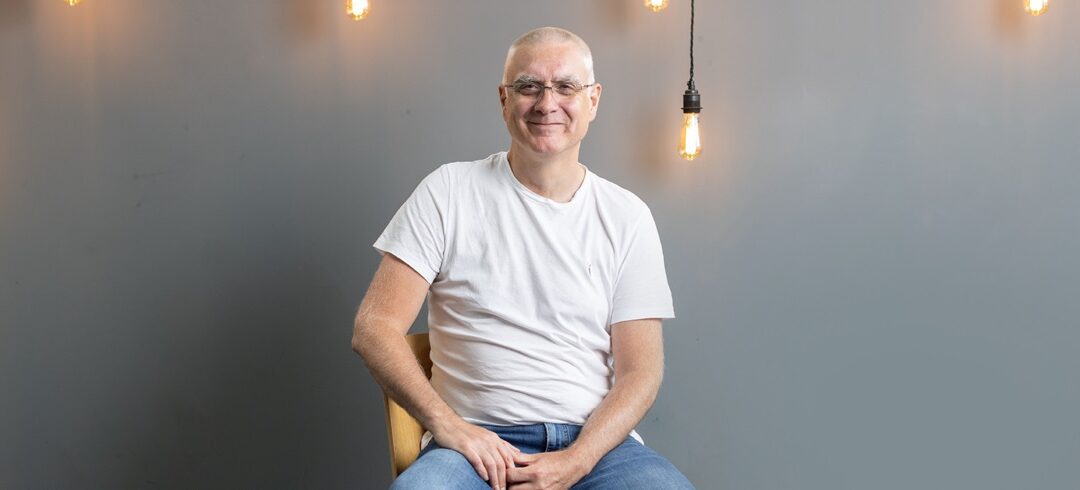FNG Exclusive Interview… Technology is always at the centre of operations of Retail FX and CFD brokers, with everything from cybersecurity to advanced trading platforms—and more recently, the implementation of AI-based applications—often at the heart of what discerning traders look for. We’re pleased to speak today with Chris Horn, Head of Engineering at Deriv, to learn more about what it’s like to manage all that tech, how Deriv handles tech challenges and opportunities, and what’s down the road.
FNG: Hi Chris, and thanks for joining us today. As we celebrate Deriv’s 25th anniversary, can you share more about your role and how you’ve driven innovation and agility within the company, contributing to its ongoing success?
Chris: Certainly! I’m Chris Horn, the Head of Engineering at Deriv. My role involves ensuring that the people, processes, and technologies within our engineering department are fully aligned with the company’s objectives.
Agility is at the heart of our operations and reflects our commitment to being exceptionally customer-focused, which is one of our core values. We prioritise our customers, strive to understand their pain points, and remain highly responsive to their needs. Additionally, we focus on identifying emerging trends and fostering innovation. A prime example of this is the introduction of our synthetic indices, which simulate the dynamics and fluctuations of real-world financial markets, including our new range of Multi-Step Indices.
 Over the past 25 years, we have witnessed significant transformations in how engineering products and projects are delivered. More recently, the last two years have seen an explosion in the adoption of low-code tools and artificial intelligence, which have changed the landscape of software development. Today’s engineers must be more versatile than ever, demonstrating flexibility and openness to utilising a diverse range of tools and technologies. They need to possess their own ‘Swiss Army knife’ of skills and resources, enabling them to adapt quickly to various challenges and effectively solve different problems. I’m proud to say that Deriv is fully embracing these trends, and we are starting to see impressive results. I would be disappointed if we did not achieve at least a tenfold increase in productivity over the next year, which will lead to faster innovation.
Over the past 25 years, we have witnessed significant transformations in how engineering products and projects are delivered. More recently, the last two years have seen an explosion in the adoption of low-code tools and artificial intelligence, which have changed the landscape of software development. Today’s engineers must be more versatile than ever, demonstrating flexibility and openness to utilising a diverse range of tools and technologies. They need to possess their own ‘Swiss Army knife’ of skills and resources, enabling them to adapt quickly to various challenges and effectively solve different problems. I’m proud to say that Deriv is fully embracing these trends, and we are starting to see impressive results. I would be disappointed if we did not achieve at least a tenfold increase in productivity over the next year, which will lead to faster innovation.
FNG: What are the major technological challenges faced by a regulated broker like Deriv beyond just maintaining operational trading platforms for your clients? How has Deriv innovated to overcome these challenges, particularly in light of your anniversary?
Chris: I’m constantly balancing the operational demands vs innovation and agility. The challenges essentially stem from the need to comply with regulatory requirements and ensure security and high uptime whilst providing the best possible user experience. This is a highly competitive and fast-evolving market, so standing still is not an option.
For example, ensuring we are compliant with the various regulatory requirements means managing vast amounts of data, and ensuring that data is accurately and securely stored. In terms of privacy, we need to handle our customer’s data sensitively.
Another related topic is localisation, our customers are truly global, and we need to understand that they have vastly different needs. We need to speak their language, and our products need to be adaptive to their needs.
Our core infrastructure needs to be able to handle spikes in demand, and as you can imagine, low latency is extremely important for many of our clients, so this is something we constantly monitor and look to drive down.
We must also ensure we have a set of robust disaster recovery strategies in place. If the worst were to happen, we could continue our operations and minimise the impact on our customers.
FNG: How does your team ensure Deriv’s platforms remain robust and scalable while innovating to meet traders’ evolving needs? How do you balance agility with platform stability?
Chris: To ensure that Deriv’s platforms remain robust and scalable while meeting traders’ evolving needs, we implement several best practices that promote agility and innovation. One key methodology we use is feature flags and A/B testing, which enables rapid iteration and continuous improvement based on user feedback.
Monitoring key metrics is essential, and we utilise ‘DORA’ metrics to evaluate our performance in efficiently deploying code while minimising lead times. Continuous improvement is at the heart of our strategy, and we are actively exploring ways to enhance these metrics to better serve our clients.
Automation has become a significant focus area, particularly in our testing processes. With the increasing adoption of AI, we anticipate even greater opportunities to enhance and streamline our development and testing workflows.
While agility is crucial, maintaining stability is equally paramount for our clients, especially since many of our products are available for trading around the clock, 365 days a year. To uphold this stability, we place considerable emphasis on key performance indicators (KPIs), real-time system monitoring, and rapid incident response. Additionally, we are investing in autonomous platform teams as a vital element of our strategy, enabling us to build a resilient infrastructure that supports continuous operation while facilitating agile innovation.
FNG: Cybersecurity is a critical issue in the financial world. How does Deriv approach cybersecurity to ensure client information is safe while maintaining 100% system uptime?
Chris: At Deriv, we place a strong emphasis on cybersecurity by embedding a security-first culture throughout our organisation. This commitment begins at the leadership level and permeates every aspect of our operations. To ensure that our employees are well-equipped to manage cybersecurity risks, we provide continuous training and awareness programmes.
We have implemented a multi-layered security framework that includes standard protections such as firewalls and intrusion detection systems, alongside cutting-edge solutions like Advanced Endpoint Detection and Response (EDR) systems. These technologies are essential for monitoring and responding to potential threats in real-time.
To protect our critical systems, we continuously assess vulnerabilities and enforce stringent access controls. Compliance with regulatory requirements is non-negotiable; we undergo regular audits to validate our security posture. These proactive measures not only safeguard sensitive client information but also ensure uninterrupted service delivery, thereby reinforcing our clients’ trust in Deriv.
FNG: Has AI impacted how Deriv conducts its business? How do you foresee AI shaping the retail financial services sector in the future, and what innovative steps has Deriv taken in this direction?
Chris: In the not-too-distant future, we anticipate AI will revolutionise our customer experience. This transformation will occur in multiple facets, from enhancing interactions with our customer service team to facilitating real-time issue resolution and offering “Predictive Customer Support”, enabling us to deliver a more personalised experience for our clients.
Additionally, AI is vital for fraud detection and security, playing both offensive and defensive roles. Staying ahead of trends in these domains is essential for us to protect our clients and maintain robust security measures.
Lastly, we foresee AI introducing a range of innovative products that will simplify trading for beginners while empowering experienced traders to make more informed decisions.









